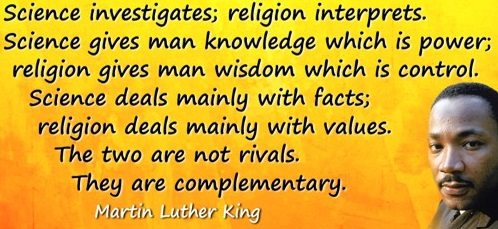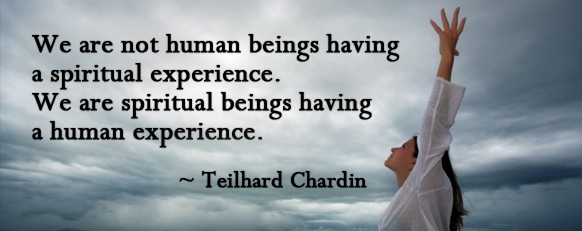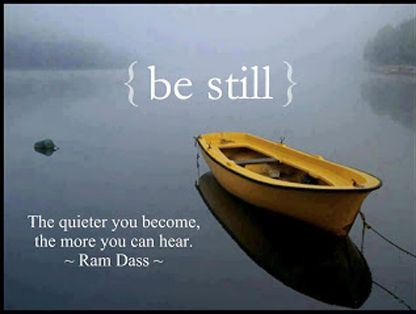Searching for meaning and purpose
When a person cannot realize or find meaning in their lives they may experience emptiness. The frustration of this may lead to depression, anxiety and or addiction.
In past generations many of us found our identity from outside sources such as family, community or church. In other words we followed the standards of others and although this was not very liberating, it provided many of us with stability. More recently with changes in education and thought we have been taught to look inside ourselves to find our identity and to decide who we want to be. Once we have realized this new identity and develop our personhood we are faced with the fact that others may not accept or agree with who we are. So this may be very liberating but it lacks in stability as we may no longer have the support of others.
Faith and Science

Jürgen Habermas, a German sociologist and philosopher, an atheist, noted that science has limits in that it is not helpful with social policy. In other words, science can tell you whether you can do something and how to do it well, but science cannot tell you whether you should do it or not. There is nothing wrong with science, but science cannot be the basis for morality.
There are several theories of what is just and moral and people operate under these different theories and there is no science or method to decide which is the right theory because they are all based on one’s intuition and conviction about human nature or good and are basically matters of faith, purpose and identity.
Utilitarians believe the right thing to do is always to maximize happiness. Libertarians believe that the right thing to do most often is to let people do whatever they want. John Locke’s theory states that there are unalienable rights afforded to every human being by the “law of nature.”
The philosopher Immanuel Kant thought that each of these views was mistaken. Kant held that freedom, not happiness, is the goal of morality. He denied that freedom consists in doing whatever one wants; he held that morality, duty, and rights have their basis in human reason, not in a law of nature
We tend to be much more persuaded by the people we like and respect, your community helps to create your beliefs. But what if you are hurt by your community? This may lead to a change in our belief pattern; which allows us to realize that the reasons we believe and disbelieve are not completely rational, they are also emotional and personal.

Where do you find your meaning?
In Mans search for meaning, Victor Frankl reports that in the Nazi death camps the people who got through with integrity were the ones who had a spiritual meaning or purpose in life. If your meaning in life was making money you could not make money in a death camp so you were destroyed. Any materialistic meaning was taken away in a death camp. Many world views force you to find meaning in material things, suffering takes those away, and with that your identity is destroyed.
According to Frankl freedom is defined as the space of shaping one’s own life within the limits of the given possibilities. This freedom is from the spiritual dimension of the person, which is understood as the human spirit, over and above the dimensions of body and of mind. As spiritual persons, humans are not just reacting beings but capable of making the choices to actively shaping our ever changing lives.

Prayer and Meditation
Although prayer and meditation are not equals, we cannot fully separate them. They are closely related in their purpose which is to elevate and lift our mood and or our spirit.
Prayer is a way that persons who believe in a higher power talk to their God. Christianity and Judaism use prayer as a means of communion with God. People in prayer give praise and thanks to God, may ask for forgiveness or assistance, and may simply want to be present with their God in a relationship. Other forms of prayer such as contemplative prayer, which is similar to the Muslim faith, involves using the repetition of sacred words with focus and devotion, contemplative reading involves thinking deeply about religious teaching and simply sitting with God all have a much closer relationship to mediation.
Meditation is a contemplative practice where an individual tries to remove all outside distractions in an effort to concentrate on one’s inner self. Hinduism and Buddhism are two major religions that practice the use of meditation. The goal of meditation is to attain a deep sense of relaxation, to turn you mind off from the thoughts of your day, it is a feeling of letting go.
Benefits of Prayer & Meditation
Scientific research has found several benefits to prayer and meditation. Andrew Newberg, a neuroscientist at the University of Pennsylvania, has been scanning the brains of many different types of religions and people who meditate for more than a decade. He has found that people who pray and or meditate have healthier brains (neuroplasticity ) . “There is no Christian, there is no Jewish, there is no Muslim, it’s just all one,” Newberg says. Dr. Newberg, found that praying can actually boost levels of dopamine in your brain, leading to less risk of depression.
The same study also fount that prayer affects the area of brain that is associated with emotion and ego, leading you to be a better person, more humble and giving. Other studies have found that praying helps in the quicker healing of surgical scars, reduces the symptoms of asthma, regulates your heart beat , improve one’s immunity and helps you to live longer

